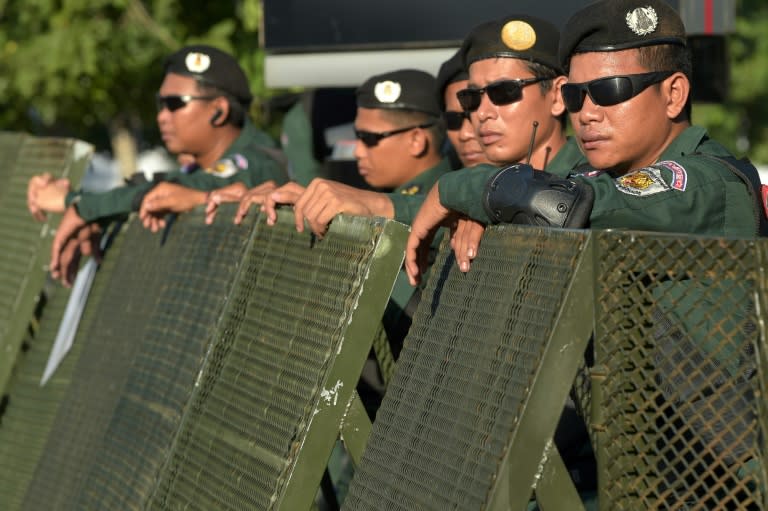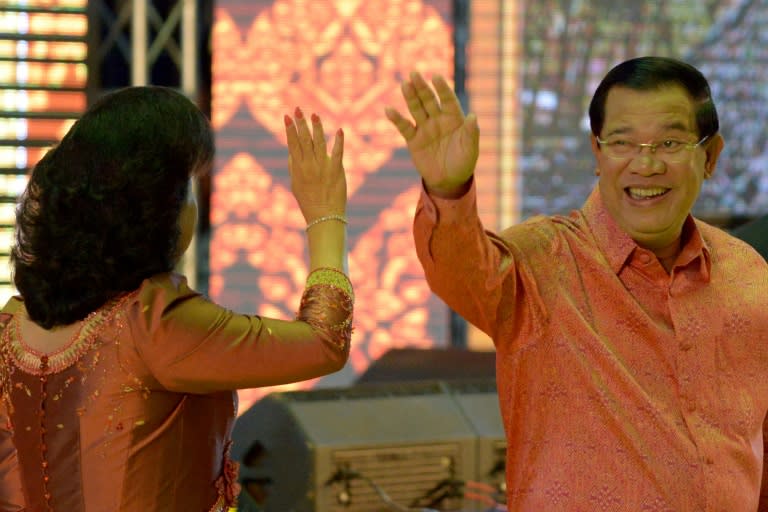Cambodia court to rule on opposition party's dissolution
Cambodian opposition politicians braced for the Supreme Court to dissolve their party on Thursday, as judges weighed a government lawsuit seen as strongman Hun Sen's final bid to eliminate his competition ahead of 2018 polls. Hun Sen, a firebrand former Khmer Rouge fighter who has held office for 32 years, has already promised a guilty verdict will be delivered on Thursday -- a ruling most agree is inevitable in a justice system firmly under the premier's thumb. The case against the Cambodia National Rescue Party (CNRP), the country's main opposition party, could see over 100 politicians banned from office for five years. That would be a crushing blow to a movement that has been battered by legal attacks since it nearly unseated Hun Sen in the last national election in 2013. Scores of riot police were deployed outside the Phnom Penh court early Thursday as the hearing began, though there were no signs of protests. Government lawyers took several hours to present their case before the panel of nine judges -- whose president Dith Munty is himself a member of Hun Sen's ruling CPP party. They accused the CNRP of teaming up with the US and other foreign forces to plot a revolution -- allegations Washington and rights groups have dismissed as bogus. - 'Resist the pressure' - Lawyers showed video clips of CNRP leaders urging supporters in 2013 to join protests over that year's poll, which the party said was stolen from them due to election fraud. "They incited anger in order to hold mass demonstrations to topple the legitimate government," government attorney Ly Chantola told the court. "The US is behind (the plot) and associations or NGOs funded by US gave them ideas," he added. In September CNRP leader Kem Sokha was detained and charged with treason over the same accusations -- a dramatic arrest that sent more than half of the party's 55 lawmakers fleeing into exile out of fear. On the eve of the Thursday's court hearing US-based Human Rights Watch urged judges to "resist government pressure" to dissolve the embattled party. "Although the Supreme Court is effectively an organ of the ruling party, it has a historic chance to show some independence and uphold the rule of law," said HRW's Asia director Brad Adams. The watchdog warned that Hun Sen was on his way to turning the nation into a "de facto one-party state". In anticipation of the ruling, his government has already passed legal amendments that allow election authorities to redistribute seats or local posts held by a dissolved party. The hardman premier, who ultimately defected from the Khmer Rouge and helped drive the regime from power, has a long history of undercutting his rivals through well-timed crackdowns and dubious court cases. But observers say the current climate of repression is harsher and longer-lasting than previous clampdowns, with Hun Sen foregoing even the pretence of leading a free democracy. In addition to assaults against the CNRP, his government has in recent months shut down a series of outspoken NGOs and independent news outlets -- including the respected Cambodia Daily.



